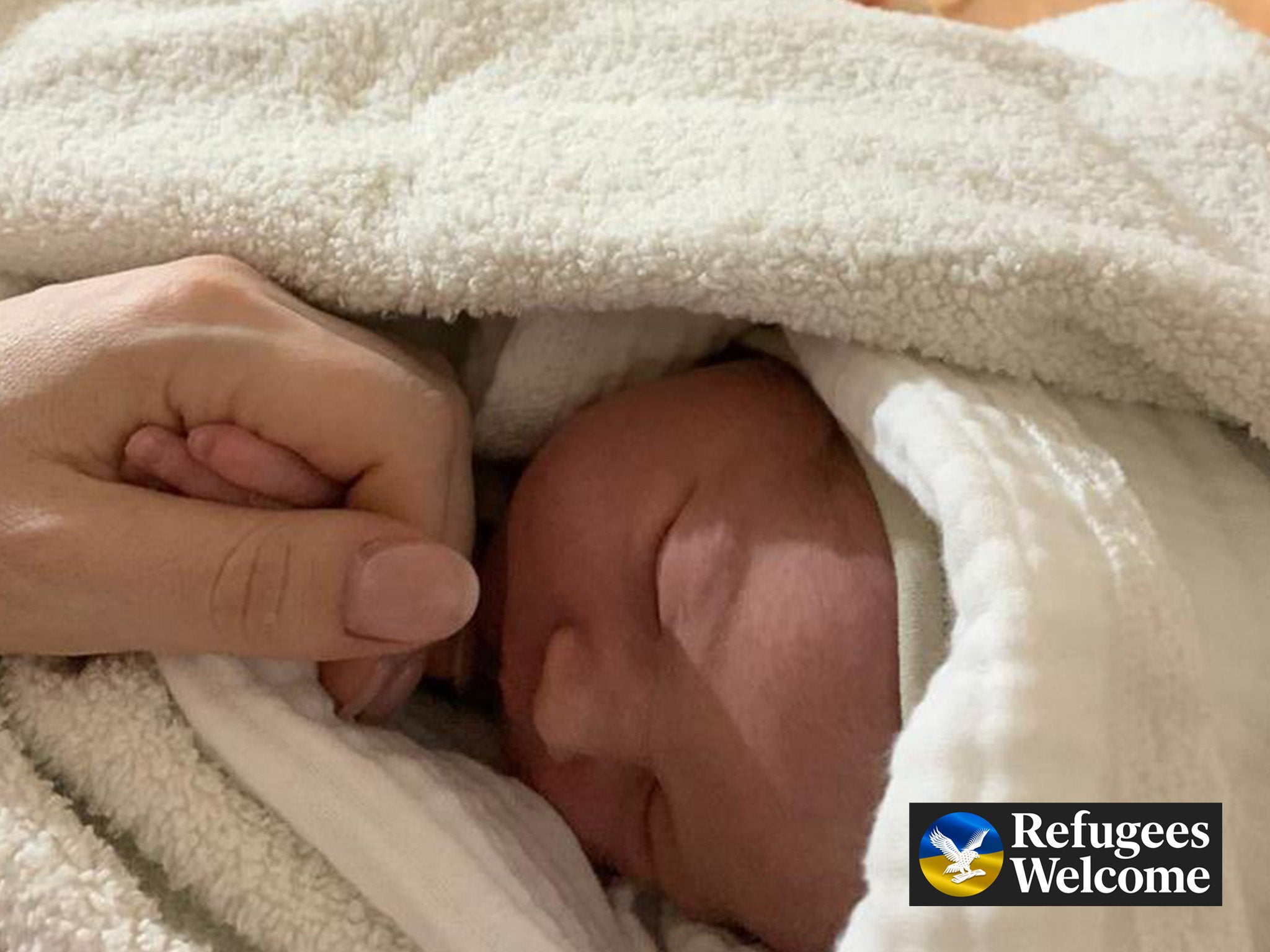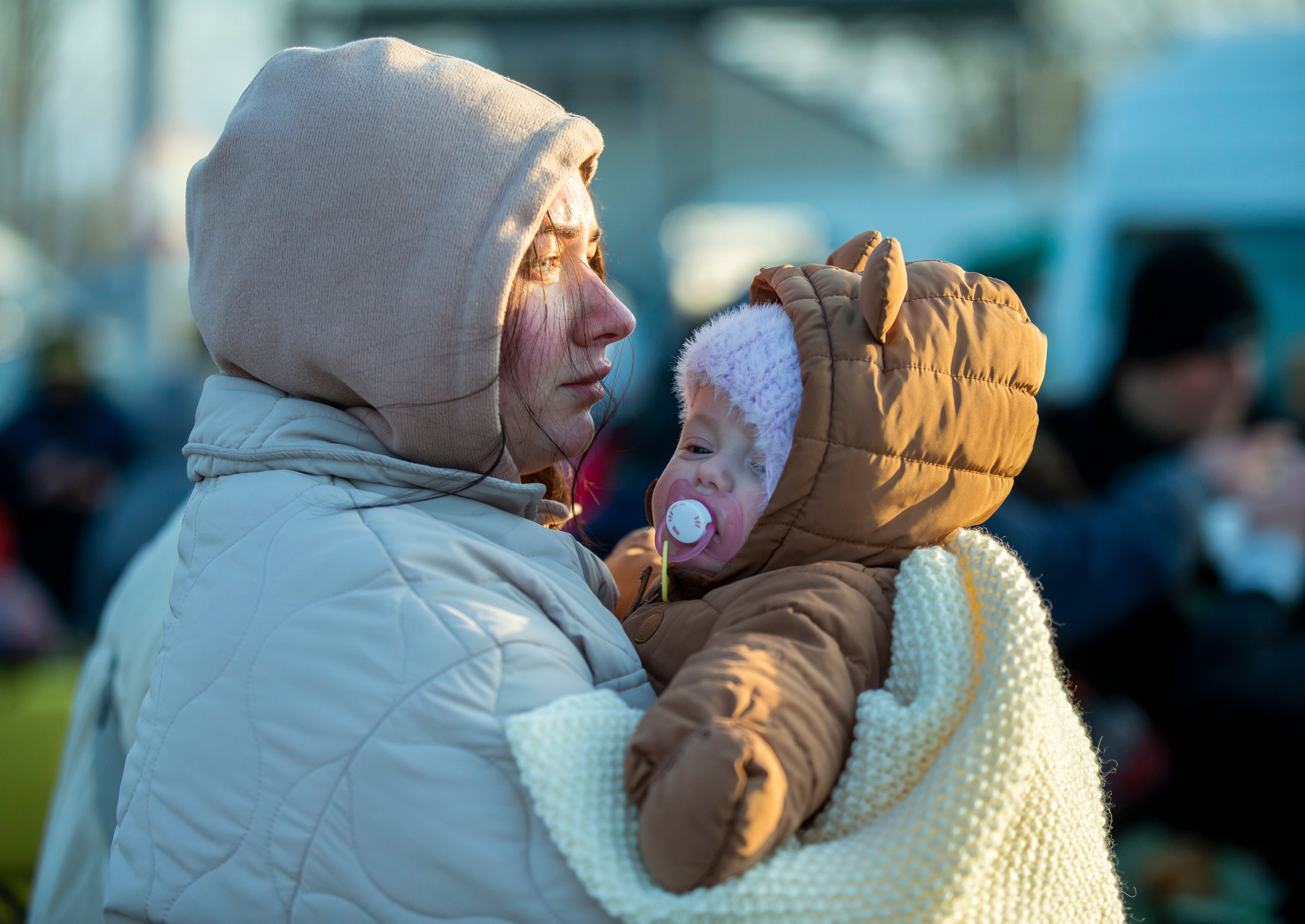You might be tempted to look away from the photos of Ukraine – don’t
Refugees Welcome: It is sickening to watch children pay the physical and emotional price of toxic political posturing


Your support helps us to tell the story
From reproductive rights to climate change to Big Tech, The Independent is on the ground when the story is developing. Whether it's investigating the financials of Elon Musk's pro-Trump PAC or producing our latest documentary, 'The A Word', which shines a light on the American women fighting for reproductive rights, we know how important it is to parse out the facts from the messaging.
At such a critical moment in US history, we need reporters on the ground. Your donation allows us to keep sending journalists to speak to both sides of the story.
The Independent is trusted by Americans across the entire political spectrum. And unlike many other quality news outlets, we choose not to lock Americans out of our reporting and analysis with paywalls. We believe quality journalism should be available to everyone, paid for by those who can afford it.
Your support makes all the difference.The first image out of Ukraine to really stun me into silence after Russia’s invasion began didn’t depict the horrors of war. It did not show buildings burning, long queues of desperate refugees at the Polish border, or even the staggering aerial view of a 40-mile-long battalion of tanks and armour, slowly ploughing its way through the Ukrainian countryside to the edge of the capital, where anxious civilians cowered in wait.
In fact, it was the beautiful, peaceful face of a newborn baby called Mia, wrapped in blankets, just hours after her arrival.
Mia had been delivered to her 23-year-old mother in an underground shelter in Kyiv, as bombs dropped overhead, with the aid of the Ukrainian police. That poor mother, I thought. How utterly frightening. How will she cope with the days ahead?
It’s a futile sentiment, but a human one. What else are we supposed to feel?
The devastating images of the upheaval, fear and confusion in the lives of Ukrainian children are hard to bear, but they demand also that we don’t turn away. We have to look at the faces of the children waiting days at border checkpoints as their families attempt to get to safety, utterly shocked but kept quiet by the sense of their parents’ deep anxiety for their future.
Some pictures force us to confront our impotence: even if we wanted to act, there are desperate situations for children where, right now, there is nothing we can do to help.
The Independent has set up a petition calling on the UK government to be at the forefront of the international community offering aid and support to those in Ukraine. To sign the petition click here
Today, Russia announced a temporary ceasefire in the Ukrainian cities of Mariupol and Volnovakha, to allow residents to leave. Sadly, this hasn’t been extended to other besieged areas, such as Chernihiv, in the north of Ukraine, where nobody can get in or out. In the city’s children’s hospital, the cancer ward is treating patients between the ages of two and 15. It is running out of morphine, and the children are in pain.
Images from the hospital show families hiding in its ragged basement during a raid, the children’s pallid, sick faces slumped against exhausted parents barely able to conceal their own terror and misery. The youngsters have been offered the chance to complete their treatment in Poland, but there’s no way to leave the city except by helicopter.
Nursing a sick child through serious illness is emotionally draining in normal times. Managing it during a war, under aerial bombardment? Unthinkable. Yet here I am, looking at these mothers, with no way to help.
Confronted by our limits in this way, it is our moral duty to seek out whatever route we can to assist. Like this newspaper and its readership, I urge the government to rethink its position: an open-door immigration rule for all fleeing violence in Ukraine is the only humane, morally justifiable response. Those families protecting children ought to be first in the queue.
The Independent is also raising money for the people of Ukraine – if you would like to donate then please click here for our GoFundMe page
For journalists, there is an ethical dilemma about publishing images of minors stricken by the dirty reality of war. The photographs coming out of Ukraine bring to mind those of young Alan Kurdi, the three-year-old Syrian boy who lost his life in his family’s attempt to cross the Mediterranean to flee conflict in their home country in 2015, and the dust-covered figure of five-year-old Omran Daqneesh, pulled from the rubble after an airstrike in Aleppo a year later and pictured, dazed and rubbing his eyes, in an ambulance.
As my colleague Will Gore said at the time, the way he brushed the dirt from his eyes was so familiar, like a child waking from a bad dream. But his image, and that of Alan, had the power to change first public and then political opinion. They made a brighter future for other Syrian refugees possible.
To keep up to speed with all the latest opinions and comment, sign up to our free weekly Voices Dispatches newsletter by clicking here
The same is true today. There will be, in the weeks (and I fear months) that follow, moments when you are tempted to pull down the blinds. It is hard to be faced with the worst of humanity writ in blood on a daily basis. It is sickening to watch those who are utterly blameless – children – pay the physical and emotional price of the idiocy of toxic political posturing.
Advice columns will suggest strategies for western citizens on how to manage their mental health during times of conflict – by limiting their exposure to news, by looking away when the truth of war becomes overwhelming.

If you feel you can’t do anything else to help, you can do this: resist that temptation, share those images, talk about what you see. Confront it. And by doing so, force our government to confront it too. What other conclusion could they possibly draw, when they really look, than this? Refugees welcome.
The Independent has a proud history of campaigning for the rights of the most vulnerable, and we first ran our Refugees Welcome campaign during the war in Syria in 2015. Now, as we renew our campaign and launch this petition in the wake of the unfolding Ukrainian crisis, we are calling on the government to go further and faster to ensure help is delivered. To find out more about our Refugees Welcome campaign, click here
Join our commenting forum
Join thought-provoking conversations, follow other Independent readers and see their replies
Comments